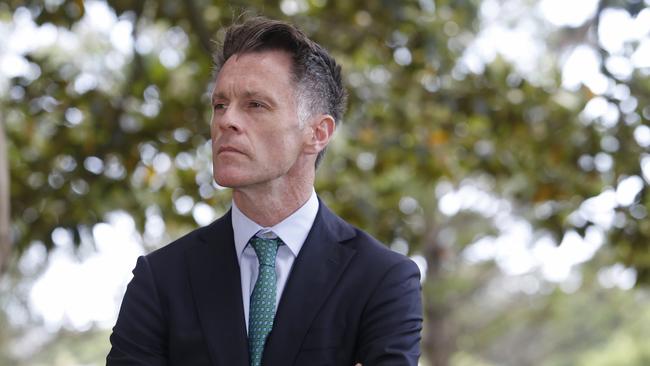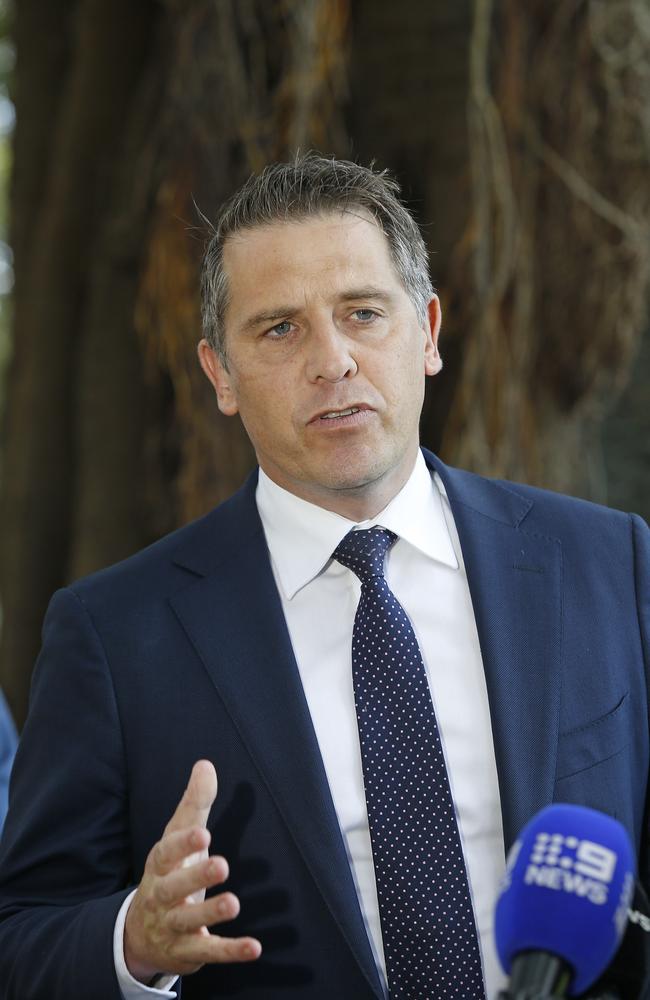‘Impending disaster’: Dire warnings as ‘mass resignation’ of mental health staff in NSW looms
The health system in one Australian state is on the verge of going “off a cliff” with more than half of this workforce set to quit.
Health
Don't miss out on the headlines from Health. Followed categories will be added to My News.
The NSW health system is facing an “impending disaster” with more than half the state’s mental health workforce set to quit in less than a week, a peak body has warned.
The Australian Salaried Medical Officers Federation NSW is pumping up pressure on the Minns government, saying more than 200 psychiatrists in the state had submitted their resignations.
It comes after doctors from the union demanded a 25 per cent base pay increase over a single year, a request which the Minns government has refused.
With the “mass resignation” to take effect on January 21, ASMOF acting executive director Ian Lisser warned that the state’s health system was about to “go off a cliff”.
“This is an impending disaster for NSW and our entire health system,” Mr Lisser said.
“With the current staff shortages, we’ve already seen mental health beds and clinics across the state close. The crisis will see even more beds and clinics close.
“Distressed patients presenting to NSW emergency departments requiring treatment from psychiatrists could be left in the ED for up to five days. They deserve better.”
Mr Lisser said the NSW government had known for at least 16 months that there were already some 140 vacancies in the psychiatry workforce across the state.
The impending situation was worsened, Mr Lisser said, by a failure of the state government to retain and recruit staff, putting at risk the entire health system.

“Despite knowing these risks, the Minns government is doing everything but actually fixing the problem,” Mr Lisser said.
“They are blaming psychiatrists. They are saying they don’t have the funds to pay our health staff what they would be paid in any other public hospital across Australia.
“The reality is that only fully trained and accredited psychiatrists can provide the quality care mental health patients in NSW require.
“Without them in the system, Premier Minns is expecting patients to accept that they won’t be able to see a doctor at all.”
Mr Lisser said contingency plans NSW Health said they would develop would put patient care at risk, and that he worried the burden would be put on trainees and nurses.
He warned it was not only mental health patients who could be impacted, with anyone presenting to the ER facing the prospect of not having a bed available for them.
“There is one solution to this crisis and that is to retain psychiatrists in the NSW Health system,” he said.
“We can’t expect doctors in NSW to cop a 30 per cent pay cut for the privilege of working in NSW.

“Psychiatrists are sick of hearing that this is an inherited crisis. It’s been Mr Minns’ problem for two years and a problem that psychiatrists have been begging to have fixed.
“It’s a problem that means patients are suffering, and yet Mr Minns has refused to fix it. Doctors deserve better, patients deserve better, and the NSW public deserves better.”
Mr Lisser said the ASMOF was calling on the Minns government to take action to fill the 140 vacancies by “providing remuneration and conditions” to attract and retain staff.
NSW Health Minister Ryan Park on Tuesday said the pay increase request sought by the ASMOF’s doctors was impractical and urged them to withdraw their resignations.
“We value the work that you do, but we as a government are not in a position to offer wage increases akin to around about $90,000,” he told SBS.
“Don’t do this to patients. Don’t do this to the healthcare system that I know you love and support. Don’t do this to your colleagues who I know you value and trust”.
The state government had offered a 10.5 per cent pay increase for hospital staff specialists over three years, following a four per cent increase that came into effect in 2023.
It comes amid protracted negotiations between the NSW government and NSW Nurses and Midwives Association for a 15 per cent pay rise called for by the powerful union.
The nurses union has staged multiple walkouts since Mr Minns was elected, and last year turned down an offer of a 10.5 per cent pay rise over three years.



